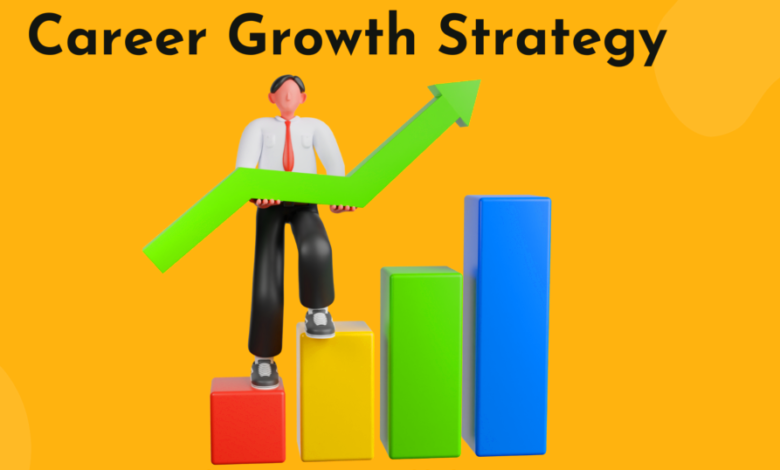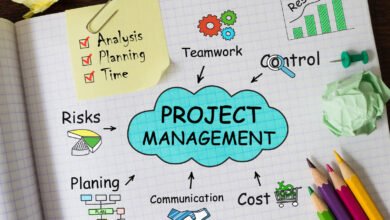Strategic Career Growth: Planning Your Professional Journey 2024

In today’s fast-paced and dynamic professional landscape, strategic career growth has become paramount for individuals aspiring to achieve their professional goals. Whether you’re a recent graduate entering the workforce or a seasoned professional looking to advance your career, having a well-thought-out plan can significantly impact your success and fulfillment in the long run.
Understanding Your Career Goals
Before embarking on your career journey, it’s crucial to take the time to understand your career goals thoroughly. This involves defining your long-term objectives, assessing your personal values and interests, and identifying short-term milestones that align with your aspirations.
Researching Your Industry and Market
To effectively plan your professional growth, you must stay informed about the latest trends and developments in your industry and market. Conduct thorough research, analyze current demands, and identify potential growth areas where your skills and expertise can thrive.
Researching Your Industry and Market is a pivotal step in strategic career growth, offering valuable insights and foresight into the dynamics of your professional field. Here’s how you can expand on this crucial aspect:
Analyzing Current Trends and Demands
Stay abreast of the latest trends, developments, and demands within your industry. This involves keeping an eye on emerging technologies, market shifts, and consumer preferences. By understanding the direction in which your industry is moving, you can align your skill set and career trajectory accordingly.
Identifying Emerging Opportunities
Conduct thorough market research to identify emerging opportunities and niche areas within your industry. Look for gaps in the market where your skills and expertise can be uniquely positioned. Being proactive in spotting opportunities allows you to stay ahead of the curve and capitalize on emerging trends.
Monitoring Competitor Activity
Keep a close watch on your competitors to understand their strategies, strengths, and weaknesses. Analyze their market positioning, product offerings, and customer engagement tactics. By studying competitor behavior, you can gain valuable insights into market dynamics and identify areas where you can differentiate yourself.
Gathering Customer Feedback
Engage with customers and gather feedback to understand their evolving needs and preferences. Conduct surveys, interviews, and focus groups to gain deeper insights into customer pain points, expectations, and satisfaction levels. By listening to the voice of the customer, you can tailor your products or services to better meet their needs.
Networking and Industry Insights
Leverage your professional network and industry connections to gather insights and intelligence about market trends and developments. Attend industry conferences, seminars, and networking events to stay connected with industry thought leaders and influencers. Engaging in conversations and knowledge-sharing activities can provide valuable perspectives and opportunities for collaboration.
Utilizing Data and Analytics
Harness the power of data and analytics to gain actionable insights into market dynamics and consumer behavior. Utilize tools and technologies to analyze market trends, customer demographics, and competitive landscapes. By leveraging data-driven insights, you can make informed decisions and optimize your career strategy for maximum impact.
Adapting to Market Changes
Recognize that markets are dynamic and subject to constant change. Stay flexible and adaptable in your approach to career growth, allowing room for adjustment and iteration based on market dynamics. Be willing to pivot your strategies and explore new opportunities as market conditions evolve.
Developing Key Skills and Competencies
Continuous learning and skill development are essential components of strategic career growth. Invest in acquiring new skills, obtaining relevant certifications, and seeking mentorship to enhance your professional capabilities and stay competitive in your field.
Continuous Learning: Commit to ongoing education through courses, workshops, and self-study to stay updated on industry trends and practices.
Identifying Core Skills: Assess current skills and focus on enhancing both technical expertise and soft skills like communication and problem-solving.
Setting Goals: Establish clear, achievable goals for skill development, breaking them into manageable steps with set deadlines.
Seeking Mentorship: Benefit from mentors’ guidance and feedback to navigate challenges and gain insights from experienced professionals.
Practical Application: Apply learned skills in real-world scenarios through projects, internships, or volunteer opportunities.
Feedback and Reflection: Actively seek feedback from peers and supervisors, reflecting on experiences to identify areas for improvement.
Adapting to Trends: Stay informed about industry trends and technological advancements, adjusting skill development efforts accordingly.
Networking and Collaboration: Engage with professional networks for knowledge exchange and collaboration opportunities.
By prioritizing continuous learning, seeking guidance, gaining practical experience, and staying adaptable to industry changes, professionals can cultivate a robust skill set crucial for sustained career advancement and success.
Building a Strong Professional Network
Networking plays a crucial role in advancing your career. Cultivate meaningful relationships with industry peers, participate in networking events, and leverage social media platforms to expand your professional network and gain valuable insights and opportunities.
Creating a Strategic Career Plan
A strategic career plan serves as a roadmap to guide your professional journey. Set SMART goals, establish actionable steps, and allocate resources effectively to ensure that you’re moving closer to your objectives with each milestone you achieve.
Implementing Your Career Plan
Effective implementation of your career plan requires diligence, adaptability, and perseverance. Be willing to take calculated risks, adapt to changes and challenges, and seek feedback from mentors and peers to refine your strategies along the way.
Measuring and Evaluating Progress
Regularly assess your progress against your career goals and objectives. Track your accomplishments, reflect on your successes and setbacks, and make adjustments to your strategies to maximize your potential for growth and success.
Staying Agile and Flexible
In today’s ever-evolving job market, agility and flexibility are key attributes for career success. Embrace lifelong learning, remain open to new opportunities, and be adaptable to changes in the industry to stay ahead of the curve.
Overcoming Common Career Growth Obstacles
Throughout your career journey, you may encounter obstacles such as fear of failure, lack of direction, or work-life balance challenges. Recognize these obstacles as opportunities for growth, seek support when needed, and persevere in pursuit of your goals.
Celebrating Achievements and Milestones
Don’t forget to celebrate your achievements and milestones along the way. Recognize your personal and professional growth, reward yourself for your hard work and dedication, and share your successes with mentors and peers who have supported you throughout your journey.
Conclusion: Embracing Strategic Career Growth
In conclusion, strategic career growth is not just about reaching the top of the corporate ladder; it’s about fulfilling your potential, finding fulfillment in your work, and continuously striving for excellence. By understanding your goals, developing key skills, building a strong network, and staying agile in the face of challenges, you can navigate your professional journey with confidence and purpose.
Read More: The Art of Career Navigation: A Creative Approach to Progress
FAQs on Strategic Career Growth
What are the benefits of strategic career growth planning?
Strategic career growth planning helps individuals clarify their goals, stay focused, and make informed decisions about their professional development.
How can I stay motivated throughout my career journey?
Staying motivated requires setting meaningful goals, staying connected to your passion, and celebrating small victories along the way.
Is it ever too late to start planning for career growth?
It’s never too late to start planning for career growth. Regardless of your age or career stage, strategic planning can help you achieve your aspirations.
How important is networking in strategic career development?
Networking is essential in strategic career development as it opens doors to new opportunities, provides valuable insights, and allows individuals to build meaningful relationships within their industry.
What role does self-reflection play in professional growth?
Self-reflection allows individuals to assess their strengths, weaknesses, and areas for improvement, enabling them to make informed decisions and grow both personally and professionally.
Read More: Career Development Essentials: Building Bridges to Success











